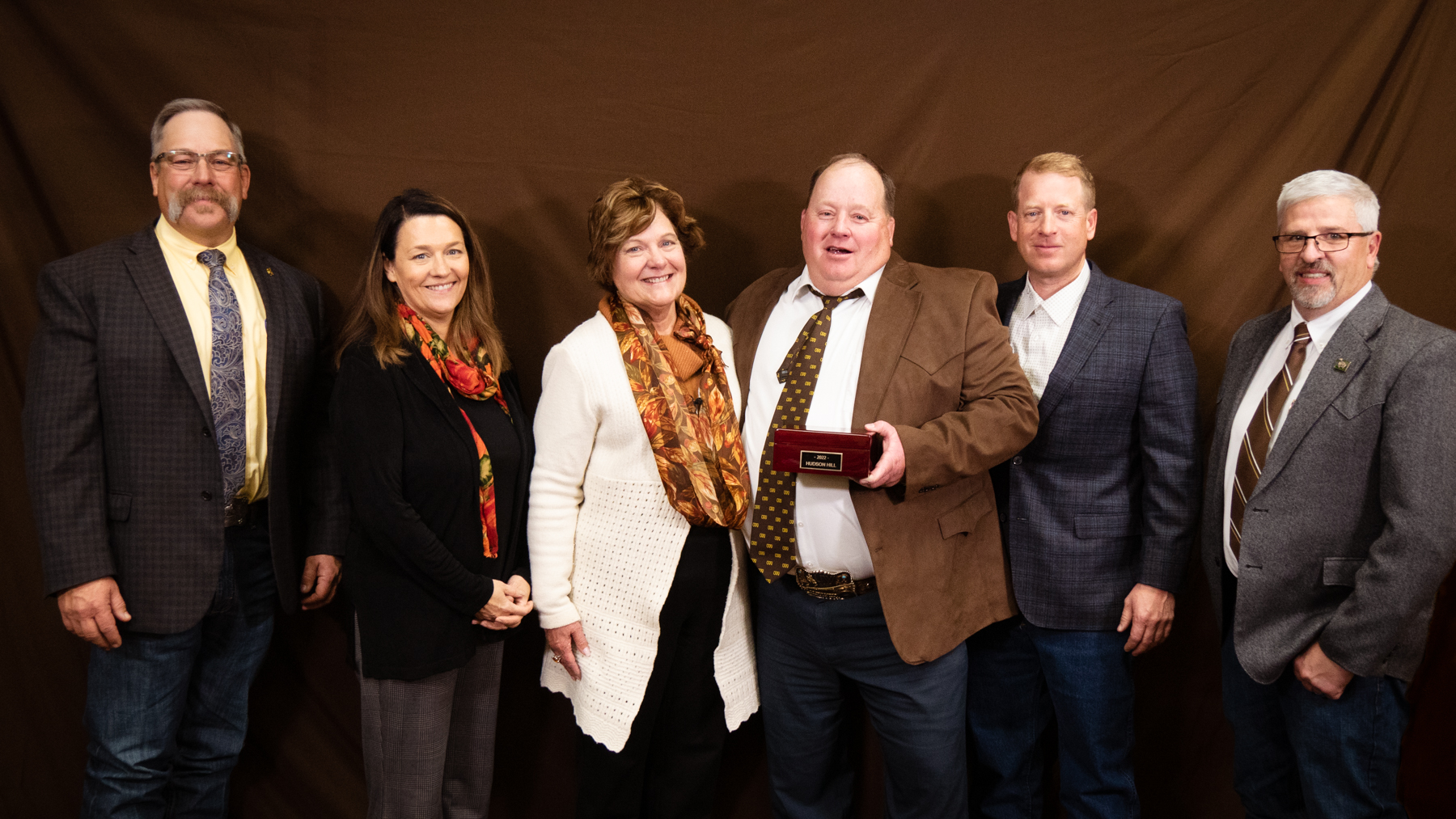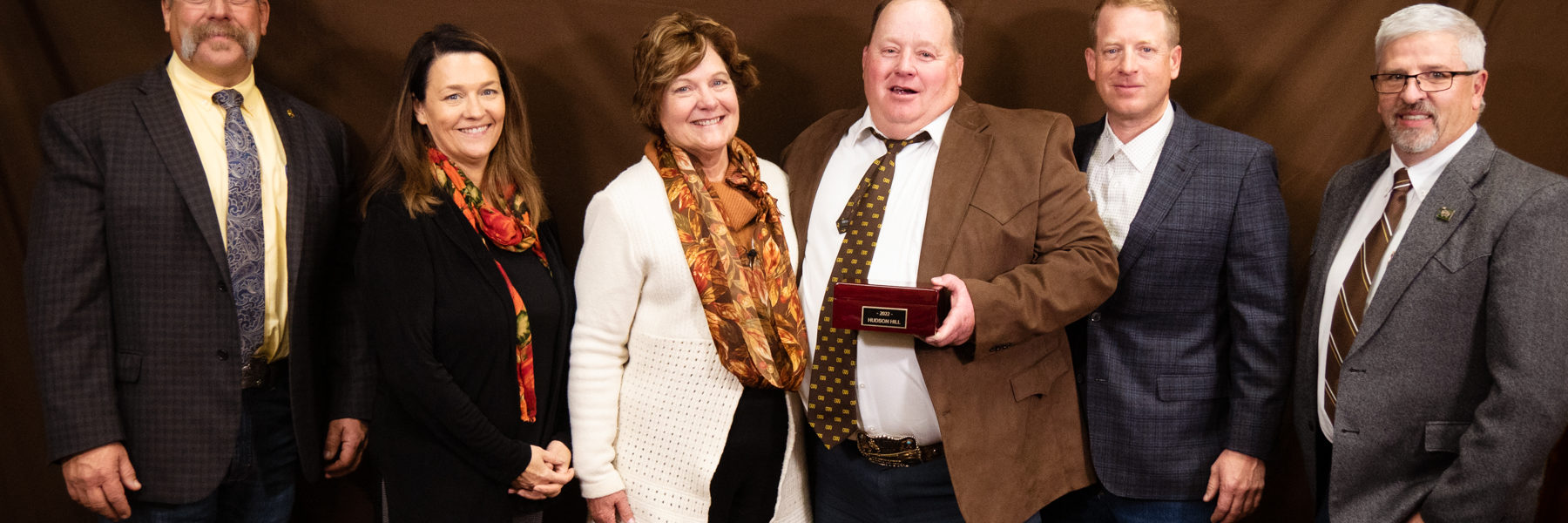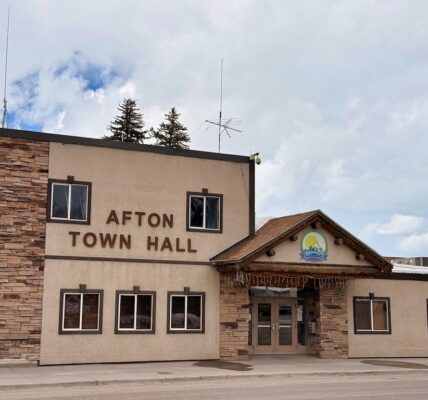
◆ Hill serves Lincoln County from Afton office –
At an annual conference in Casper last month, the University of Wyoming Extension recognized educators across the state for outstanding service in 2022.
• Hudson Hill of Lincoln County receives UW Extension’s Highest Honor
In his 20 years with UW Extension, agriculture and natural resources educator and 2022 Jim DeBree Award recipient Hudson Hill has diligently served not only his assigned counties, but the entire state of Wyoming.
“The creative methods Hudson uses for education are great examples of his remarkable teaching abilities,” writes a fellow educator. “He is always able to connect with an audience and convey information that is easy to understand.”
Throughout his lengthy career with UW Extension, Hill has consistently delivered quality programming on topics ranging from dairy production and artificial insemination to horticulture and ATV safety. He has taught safe handling practices for poultry processing in every county in Wyoming.
In 2021, Hill co-founded Wyoming Ranch Camp, a new hands-on program designed to educate young adults interested in working on, with or around ranching operations. He also coordinates the Wyoming-Utah Ag Days program.
“People enjoy getting to know him,” says Barton Stam, President of the Wyoming Association of County Agricultural Agents. “People are comfortable to learn with him and grow.”
• Ranch Camp team recognized for innovative, impactful programming
The founders of Wyoming Ranch Camp—UW Extension educators Hudson Hill, Chance Marshall, Brian Sebade and Barton Stam—received the 2022 Creative Excellence Recognition award.
The five-day program, established in 2021, provides recent high school graduates and college students with a wide range of practical learning experiences on a host ranch. Educational activities are facilitated by both extension personnel and ranch managers.
Each day highlights a different aspect of ranch management, including economics, ranch diversification, animal science, and plant and soil science. Hands-on experiences like docking sheep and implanting cattle are balanced with seminar-based learning.
As part of the critical thinking component of the camp, teams of participants collaborate throughout the week to create a ranch plan for the host ranch. Plans are presented to ranch managers and extension personnel for feedback on the last day of the program.
Regardless of the experiences they brought to the program, camp participants have reported valuable learning outcomes.
“I can really use this and apply it to life—already—and that means a lot to me,” comments one participant. Despite an extensive background in cattle ranching, she came away with new ideas for how to improve operations at the family ranch.
Another participant, who entered the program with no ranching experience, says that Ranch Camp inspired her to adopt a more interdisciplinary approach to her graduate research.
“This program is getting lots of positive feedback,” notes Sebade. He looks forward to Ranch Camp 2023.





